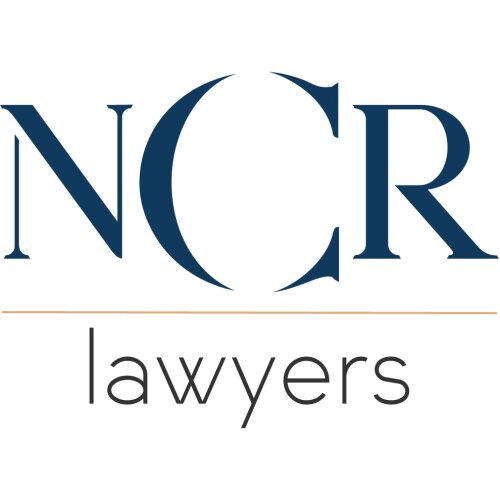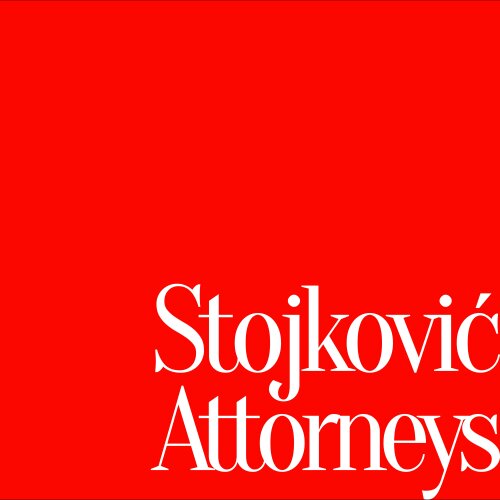Best Media, Technology and Telecoms Lawyers in Serbia
Share your needs with us, get contacted by law firms.
Free. Takes 2 min.
Or refine your search by selecting a city:
List of the best lawyers in Serbia
About Media, Technology and Telecoms Law in Serbia
Serbia's Media, Technology, and Telecommunications sector is an ever-evolving landscape that reflects the dynamic growth of digital markets and the increasing reliance on modern communication methods. This field encompasses laws and regulations governing the press, broadcasting, data protection, telecommunications infrastructure, and digital services. The government's commitment to fostering a competitive and transparent regulatory environment ensures steady growth and innovation. With global and local players vying for market presence, understanding the legal framework is crucial for businesses and individuals involved in these sectors.
Why You May Need a Lawyer
There are numerous situations where one might require legal assistance in the Media, Technology, and Telecoms sectors. For example, businesses may need help navigating complex regulations surrounding media ownership or data protection compliance, while individuals might seek advice on digital rights and privacy concerns. Startups often require guidance on intellectual property issues, licensing, and regulatory approvals. Additionally, legal advice can be crucial in resolving disputes or understanding the nuances of contracts related to media services, technology development, or telecommunications infrastructure.
Local Laws Overview
Serbia's legal framework for Media, Technology, and Telecoms comprises several crucial aspects:
- Media Law: This includes regulations on broadcasting, media ownership, and freedom of information, ensuring diverse media landscapes and protecting against monopolies.
- Data Protection: Serbia has aligned its laws with the EU's General Data Protection Regulation (GDPR), focusing on the collection, processing, and storage of personal data.
- Telecommunications Act: Governs the establishment and operation of telecommunications networks and services, promoting fair competition and infrastructure development.
- Intellectual Property Rights: Critical for technology firms and content creators, these laws cover patents, trademarks, copyrights, and trade secrets.
- Cybersecurity Laws: Establish protocols for protecting information systems against threats and ensuring secure digital communication.
Frequently Asked Questions
What is the role of the Regulatory Authority for Electronic Communications and Postal Services (RATEL)?
RATEL is the main regulatory body overseeing telecommunications and postal services in Serbia, ensuring compliance with legal standards and fostering market competitiveness.
Are there specific rules for digital marketing and advertising in Serbia?
Yes, digital marketing is subject to consumer protection laws that regulate advertisement content, data privacy, and electronic communication rules.
How does Serbian law address copyright infringement online?
Serbian copyright law, aligned with international standards, provides mechanisms to protect intellectual property online and address infringement through legal channels.
What are the implications of GDPR for businesses operating in Serbia?
Businesses must ensure robust data handling procedures, obtaining consent for data processing, ensuring data security, and providing access rights to individuals.
Can foreign companies establish telecom services in Serbia?
Yes, foreign entities can enter the Serbian telecom market but must comply with Serbian laws, including licensing and regulatory requirements.
How are disputes in the media and telecom sector usually resolved?
Disputes can be resolved through legal proceedings, arbitration, or mediation, depending on the nature of the dispute and the agreed-upon terms between parties.
What are the penalties for non-compliance with Serbia's media or telecom laws?
Penalties can range from fines to revocation of business licenses, depending on the severity and nature of the non-compliance.
Are there laws protecting online privacy in Serbia?
Yes, Serbia enforces strict data protection laws, ensuring individuals' privacy and regulating how personal data can be collected and used.
What should startups know about telecom licensing in Serbia?
Startups should be aware of the need for licenses and adhere to the regulatory framework related to services they plan to offer, with guidance from legal experts to navigate the processes.
Can media ownership be foreign in Serbia?
Foreign ownership in media companies is allowed but subject to specific legal stipulations designed to prevent monopolistic practices and ensure media plurality.
Additional Resources
Several resources can provide assistance and information:
- Ministry of Trade, Tourism and Telecommunications: Offers regulations and policies related to the telecom sector.
- RATEL: The regulatory body providing resources and guidance for telecommunications operations.
- Serbian Intellectual Property Office: A source for copyrights, patents, and other intellectual property issues.
- Consumer Protection Agency: Offers resources for understanding laws related to digital marketing and online consumer rights.
Next Steps
If you need legal assistance in the Media, Technology, and Telecoms sectors, consider taking the following steps:
- Consult with a specialized law firm or attorney proficient in Serbian media, technology, and telecom laws to understand your legal standing and obligations.
- Engage with professional organizations or networks in the relevant sectors to connect with legal experts and business advisors.
- Attend industry-related workshops or seminars to stay informed about the latest legal trends and requirements in Serbia.
- Consider collaborating with local partners who have established knowledge of the regulatory environment if you are a foreign entity entering the market.
Lawzana helps you find the best lawyers and law firms in Serbia through a curated and pre-screened list of qualified legal professionals. Our platform offers rankings and detailed profiles of attorneys and law firms, allowing you to compare based on practice areas, including Media, Technology and Telecoms, experience, and client feedback.
Each profile includes a description of the firm's areas of practice, client reviews, team members and partners, year of establishment, spoken languages, office locations, contact information, social media presence, and any published articles or resources. Most firms on our platform speak English and are experienced in both local and international legal matters.
Get a quote from top-rated law firms in Serbia — quickly, securely, and without unnecessary hassle.
Disclaimer:
The information provided on this page is for general informational purposes only and does not constitute legal advice. While we strive to ensure the accuracy and relevance of the content, legal information may change over time, and interpretations of the law can vary. You should always consult with a qualified legal professional for advice specific to your situation.
We disclaim all liability for actions taken or not taken based on the content of this page. If you believe any information is incorrect or outdated, please contact us, and we will review and update it where appropriate.
Browse media, technology and telecoms law firms by service in Serbia
Serbia Attorneys in related practice areas.
Browse media, technology and telecoms law firms by city in Serbia
Refine your search by selecting a city.










